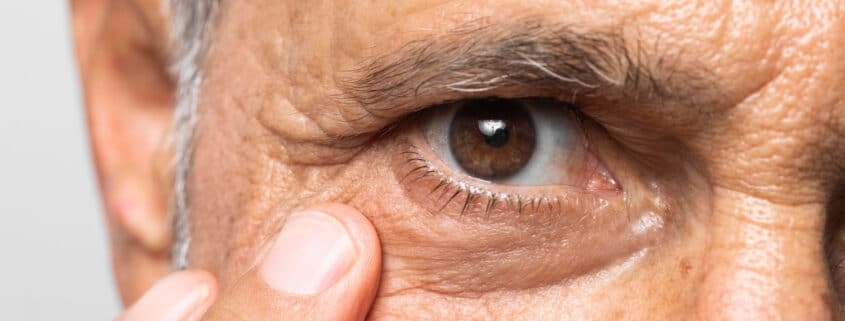5 Common Eye Issues & Prevention Tips: A Guide
Our eyes are vital organs that often require more care and attention than we may realise. In today’s fast-paced, technology-driven world, many individuals experience a myriad of common eye issues that can significantly impact their quality of life. At Perspective Optometrists, we believe in the importance of proactive eye care to protect your vision and maintain optimal eye health.
In this informative listicle, we explore five common eye problems and offer practical advice on how to prevent these issues. By drawing on the expertise of Perspective Optometrists, this article aims to provide you with the knowledge and tools needed to safeguard your eyes and avoid potential complications. So, let’s dive right in and discover how to take control of your eye health and allow your eyes to function at their best.
1. Dry Eyes: Causes and Prevention
Dry eyes are a common condition characterised by a lack of adequate tear production or poor-quality tears, leading to discomfort, redness, and blurred vision. Several factors can contribute to dry eyes, such as age, hormonal changes, exposure to digital screens, and environmental conditions.
To prevent dry eyes, follow these tips:
- Take breaks from screen time: Practice the 20/20/20 rule—every 20 minutes, take a 20-second break and focus on something 20 feet away.
- Blink frequently: Remember to blink consciously throughout the day, especially when using digital devices.
- Stay hydrated: Drink plenty of water to help maintain tear production.
- Use a humidifier: Maintain proper humidity levels in your surroundings to prevent dry air from causing eye discomfort.
- Consider eye drops: Seek advice from your optometrist and use lubricating eye drops to alleviate dryness and maintain eye comfort.
2. Digital Eye Strain: Causes and Prevention
Digital eye strain (also known as computer vision syndrome) is a consequence of prolonged use of computers, smartphones, and tablets. Symptoms include blurred vision, eye fatigue, headaches, and dryness. To alleviate and prevent digital eye strain, consider implementing these tips:
- Adjust your working space: Ensure your workspace is ergonomically designed, with proper lighting and screen positioning to reduce glare and strain on your eyes.
- Minimise glare: Adjust your device’s brightness, contrast, and background settings to optimal levels, and consider investing in an anti-glare screen protector.
- Follow the 20/20/20 rule: As mentioned earlier, this rule helps reduce eye strain by refocusing your eyes at regular intervals.
- Blue light glasses: Consult your optometrist about the potential benefits of blue light glasses to minimise exposure to harmful blue light emitted by digital screens.
3. Eye Allergies: Causes and Prevention
Eye allergies, also known as allergic conjunctivitis, occur when the eyes react to allergens in the air, causing itching, redness, and swelling. Common allergens include pollen, dust, and pet dander. To prevent eye allergies, consider the following tips:
- Avoid allergens: Identify your specific allergens and take steps to reduce your exposure to them.
- Keep your environment clean: Regular cleaning, vacuuming, and dusting can minimise the presence of allergens.
- Wear protective eyewear: Wear wraparound sunglasses to shield your eyes from allergens when outdoors.
- Prescription eye drops: Consult your optometrist on suitable eye drops to alleviate allergy symptoms and provide relief.
4. Cataracts: Causes and Prevention
Cataracts occur when the eye’s lens becomes cloudy, leading to blurred or distorted vision. They commonly develop due to ageing, but other factors, such as exposure to ultraviolet (UV) light, smoking, and diabetes, can contribute to their formation.
Preventive measures for cataracts include:
- Protect your eyes from UV light: Wear sunglasses with 100% UV protection to shield your eyes from harmful UV radiation.
- Maintain a healthy diet: Consuming a balanced diet rich in antioxidants, such as vitamins C and E, can reduce the risk of cataract development.
- Quit smoking: Smoking increases the risk of cataracts. Opt for a smoking cessation programme to improve your overall eye health.
- Control blood sugar levels: Long-term high blood sugar associated with diabetes can increase the risk of cataracts. If you have diabetes, work with your medical team to manage and regulate blood sugar levels.
5. Glaucoma: Causes and Prevention
Glaucoma is a group of eye diseases resulting from increased pressure within the eye, damaging the optic nerve and leading to vision loss if left untreated. While genetic factors and age contribute to glaucoma risk, certain steps can help maintain eye health:
- Regular eye exams: Regular comprehensive eye examinations, including intraocular pressure checks, are key in glaucoma detection and prevention.
- Exercise: Moderate, consistent exercise can lower intraocular pressure, reducing the risk of developing glaucoma. Consult your doctor before beginning a new exercise regimen.
- Limit caffeine intake: High doses of caffeine can temporarily elevate intraocular pressure. Limit your caffeine intake and avoid excessive consumption.
- Elevate your head during sleep: Use a wedge pillow to keep your head elevated if your optometrist advises.
Safeguard Your Vision with Perspective Optometrists
Understanding and addressing common eye issues is crucial for maintaining optimal eye health and vision. By implementing the preventive measures outlined in this article, you can minimise the impact of these conditions and protect your vision for years to come. At Perspective Optometrists, we’re dedicated to assisting you on your journey to optimal eye health.
Schedule an appointment with our experienced and knowledgeable optometrists in London to receive personalised advice tailored to your specific needs. Your eye health deserves the best care possible, and our team at Perspective Optometrists is committed to guiding you every step of the way. Don’t delay—book your consultation now and take charge of your eye health today.








Leave a Reply
Want to join the discussion?Feel free to contribute!